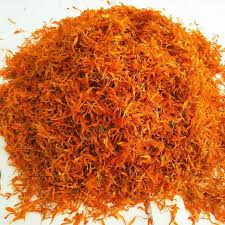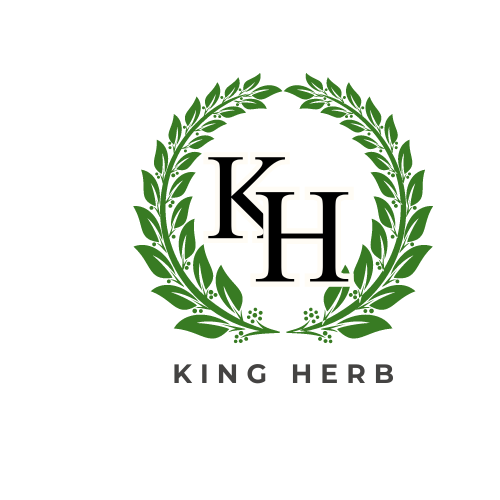الكلانديولا Calendula
Calendula, scientifically known as Calendula officinalis, is a vibrant, yellow to orange flowering plant that belongs to the Asteraceae family. Often referred to as “marigold,” calendula is widely recognized for its beauty, but it is also highly valued for its numerous therapeutic properties. With a long history of use in herbal medicine, calendula is renowned for its healing abilities, especially when it comes to skin health and inflammation.
Nutritional Components of Calendula
Calendula flowers contain a variety of beneficial compounds, including flavonoids, saponins, carotenoids, and essential oils. These compounds contribute to its anti-inflammatory, antimicrobial, and antioxidant properties. Calendula is also rich in vitamins, particularly Vitamin C, which plays a key role in boosting the immune system and supporting skin health.
Benefits:
Skin Health and Healing: Calendula is best known for its ability to promote skin health. It is frequently used in topical creams, oils, and ointments to treat various skin conditions, including cuts, scrapes, burns, and insect bites. Calendula helps accelerate the healing process by improving blood circulation to the affected area and encouraging tissue regeneration.
Anti-inflammatory Properties: Calendula contains natural anti-inflammatory compounds that help reduce inflammation in the body. It is often used to treat inflammatory skin conditions such as eczema, psoriasis, and dermatitis. Calendula can also be helpful for internal inflammation, especially in the digestive tract.
Antimicrobial and Antiseptic Effects: Calendula has antimicrobial and antiseptic properties that make it effective in preventing infections. It is commonly applied to wounds and abrasions to reduce the risk of infection and accelerate healing. Additionally, calendula can help treat minor infections like colds and sore throats when used in the form of tea or gargle.
Digestive Health: Calendula can be beneficial for the digestive system. It is often used to soothe an upset stomach, alleviate indigestion, and relieve symptoms of irritable bowel syndrome (IBS). Its calming properties help reduce inflammation in the gastrointestinal tract, making it useful for treating ulcers, gastritis, and other digestive issues.
Boosting Immune Function: The antimicrobial and antioxidant compounds found in calendula help boost the immune system, making the body more resilient to infections and illnesses. Calendula is often used to support the immune system during colds or flu, helping to reduce the severity and duration of symptoms.
Pain Relief: Calendula has natural analgesic properties, making it useful for relieving pain associated with minor injuries or inflammatory conditions. It is particularly helpful for reducing pain and discomfort in conditions like sore muscles, sprains, and menstrual cramps.
Anti-cancer Potential: Some studies suggest that calendula may have anti-cancer properties due to its high antioxidant content. It is believed that the flavonoids and carotenoids in calendula help neutralize free radicals, which are harmful compounds that can lead to cancer. While further research is needed, calendula shows promise in the prevention of certain types of cancer.
Ways to Use Calendula
Topical Use: Calendula is most commonly used in the form of creams, ointments, oils, or salves applied directly to the skin. It can help treat minor cuts, burns, rashes, and other skin irritations.
Calendula Tea: Calendula can be made into a soothing herbal tea by steeping dried flowers in hot water. This tea is beneficial for digestive health and can help with inflammation or irritation in the throat.
Tinctures and Extracts: Calendula tinctures or liquid extracts are commonly used as a natural remedy for various conditions. They can be used to treat digestive issues, promote healing, or reduce inflammation.
Baths: Adding calendula to a warm bath can help relieve skin conditions such as eczema or sunburn, as well as promote relaxation.
Precautions and Side Effects
While calendula is generally considered safe, it is important to use it with caution in certain situations. People who are allergic to plants in the Asteraceae family (such as daisies, ragweed, or chrysanthemums) should avoid using calendula. Additionally, pregnant and breastfeeding women should consult a healthcare provider before using calendula products, as its safety during pregnancy has not been extensively studied.
Calendula may also interact with certain medications, particularly those that affect the immune system or blood clotting. Therefore, it is always advisable to consult a healthcare professional before using calendula, especially if you are taking medications or have underlying health conditions.
Export details to all parts of the world:
Types: Flowers or petals
Weight: As per client request
Weight, packing, and filling: Automated
Origin: Egypt
Packing: Bags or cartons

Calendula Flowers

